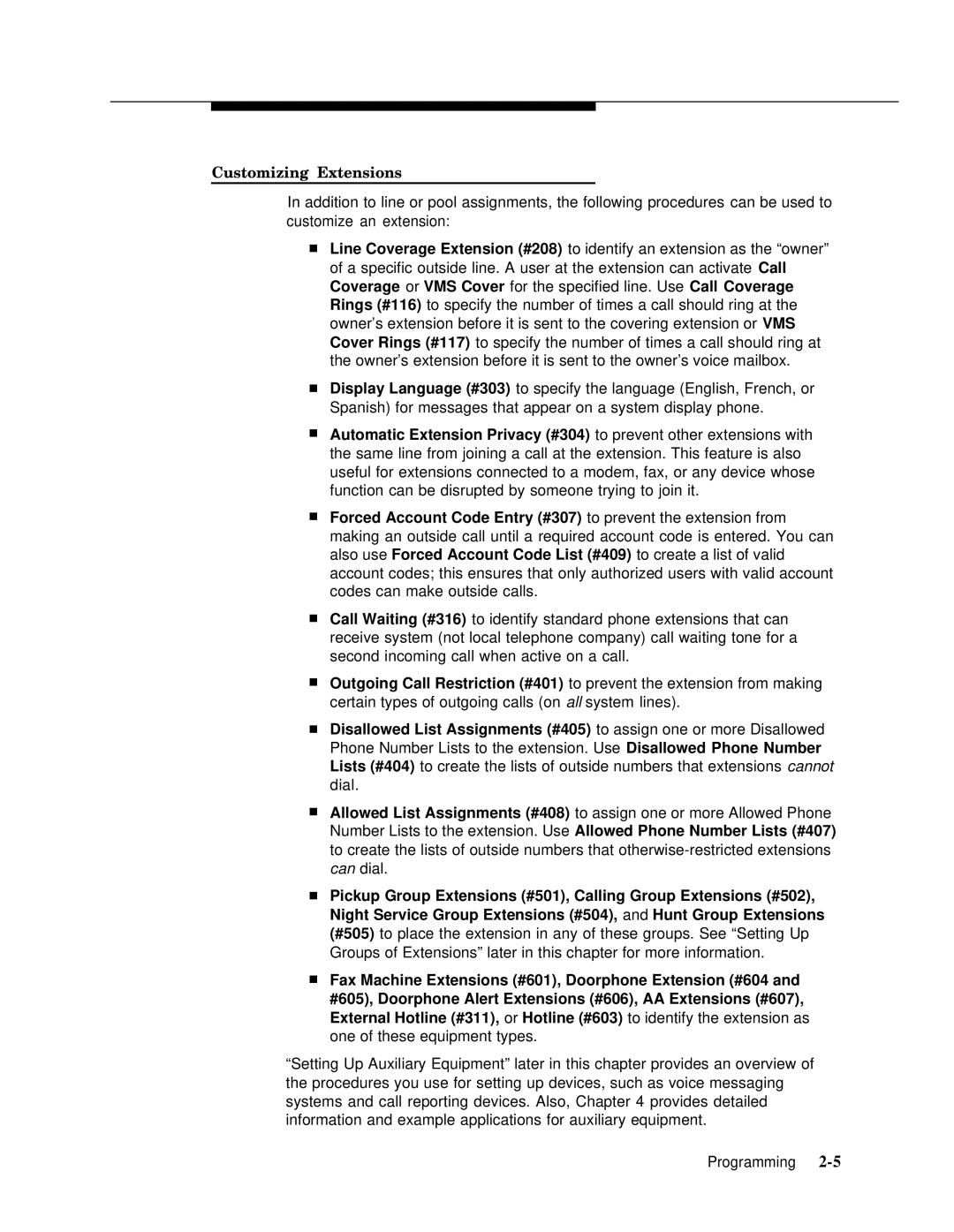
Customizing Extensions
In addition to line or pool assignments, the following procedures can be used to customize an extension:
■Line Coverage Extension (#208) to identify an extension as the “owner” of a specific outside line. A user at the extension can activate Call Coverage or VMS Cover for the specified line. Use Call Coverage Rings (#116) to specify the number of times a call should ring at the owner’s extension before it is sent to the covering extension or VMS Cover Rings (#117) to specify the number of times a call should ring at the owner’s extension before it is sent to the owner’s voice mailbox.
■Display Language (#303) to specify the language (English, French, or Spanish) for messages that appear on a system display phone.
■Automatic Extension Privacy (#304) to prevent other extensions with the same line from joining a call at the extension. This feature is also useful for extensions connected to a modem, fax, or any device whose function can be disrupted by someone trying to join it.
■Forced Account Code Entry (#307) to prevent the extension from making an outside call until a required account code is entered. You can also use Forced Account Code List (#409) to create a list of valid account codes; this ensures that only authorized users with valid account codes can make outside calls.
■Call Waiting (#316) to identify standard phone extensions that can receive system (not local telephone company) call waiting tone for a second incoming call when active on a call.
■Outgoing Call Restriction (#401) to prevent the extension from making certain types of outgoing calls (on all system lines).
■Disallowed List Assignments (#405) to assign one or more Disallowed Phone Number Lists to the extension. Use Disallowed Phone Number Lists (#404) to create the lists of outside numbers that extensions cannot dial.
■Allowed List Assignments (#408) to assign one or more Allowed Phone Number Lists to the extension. Use Allowed Phone Number Lists (#407) to create the lists of outside numbers that
■Pickup Group Extensions (#501), Calling Group Extensions (#502), Night Service Group Extensions (#504), and Hunt Group Extensions (#505) to place the extension in any of these groups. See “Setting Up Groups of Extensions” later in this chapter for more information.
■Fax Machine Extensions (#601), Doorphone Extension (#604 and #605), Doorphone Alert Extensions (#606), AA Extensions (#607), External Hotline (#311), or Hotline (#603) to identify the extension as one of these equipment types.
“Setting Up Auxiliary Equipment” later in this chapter provides an overview of the procedures you use for setting up devices, such as voice messaging systems and call reporting devices. Also, Chapter 4 provides detailed information and example applications for auxiliary equipment.
Programming
